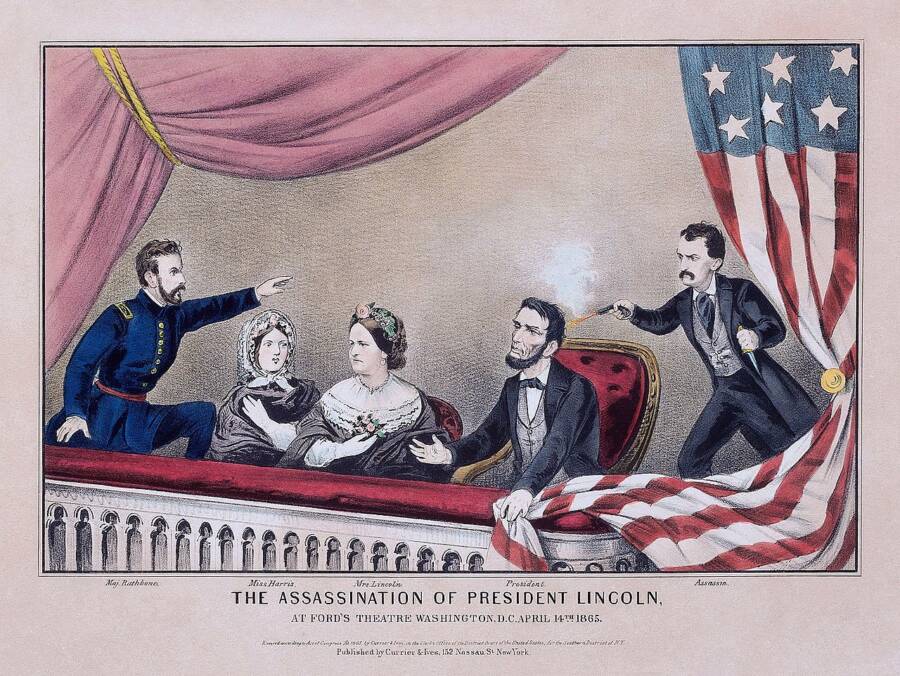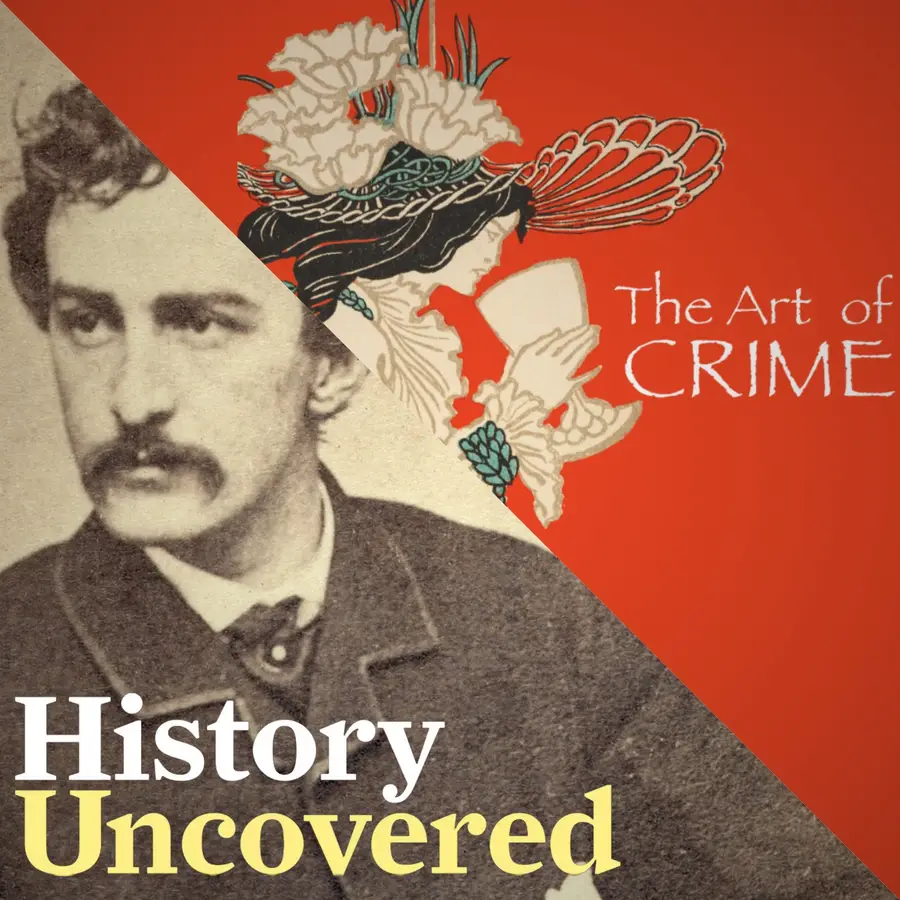Who exactly was John Wilkes Booth, the famous actor-turned-political radical who assassinated President Abraham Lincoln in April 1865?
In this episode, we sat down with Gavin Whitehead from The Art of Crime podcast to talk about John Wilkes Booth, the infamous assassin of Abraham Lincoln. The second season of Whitehead’s show focuses on assassins with an artistic streak and Booth, a celebrated actor in his day, is certainly one of the most dramatic killers in American history.
Indeed, though Whitehead has covered other assassins like Valerie Solanas and David Alfaro Siqueiros, he agrees that Booth certainly stands out. In fact, Booth’s career as an actor seems to have informed his assassination of Lincoln on April 14, 1865.
“[Booth] was probably on his way to becoming one of the great actors of the 19th century in the United States,” Whitehead explains. “So it’s impossible to look at how he carried out this assassination, without [keeping] that in mind.”

Public DomainA lithograph depicting the assassination of Abraham Lincoln by John Wilkes Booth.
On that fateful day, Booth snuck up behind Lincoln at Ford’s Theatre in Washington, D.C., shot him in the head, then cried out “Sic semper tyrannis!” [Thus always to tyrants!] as he leapt from the presidential box.
“Incidentally,” Whitehead explained, “John Wilkes Booth was famous for sort of executing similar stunts during his stage career… That was one of the things that he was known for… He’s one of the great theatrical swordsmen of his generation. So he’s good at [those] kind of action scenes.”
We also discussed how Booth’s contentious relationship with his family — also actors — informed the assassination, how his original plot to kidnap the president was even more dramatic than what actually happened, and his curious admiration for abolitionist John Brown.
Brown, of course, masterminded the failed raid on Harpers Ferry in 1859. Brown hoped to incite a slave rebellion; he was hanged instead. Booth even attended the execution.
But though Booth hated the man and everything he stood for, he described Brown as “the grandest character of this century.” Whitehead believes that that language is significant.
“In the case of John Brown… he was larger than life,” Whitehead said. “John Wilkes Booth was unabashedly pro-slavery. He hated everything that John Brown stood for… but what he admired about Brown was this heroic stature that he possessed and his readiness to commit acts of violence… he identified with that readiness to commit violence, and of course, that’s what Booth would go on to do five or six years after the hanging of John Brown.”
Eventually, Booth’s readiness to commit violence would lead him to assassinate Abraham Lincoln on April 14, 1865.
Learn more about what happened to John Wilkes Booth after the assassination of Lincoln sealed his dark place in American history.
Learn more about the music used in our podcast. History Uncovered is part of the Airwave Media network. Learn more about your ad choices by visiting megaphone.fm/adchoices.






